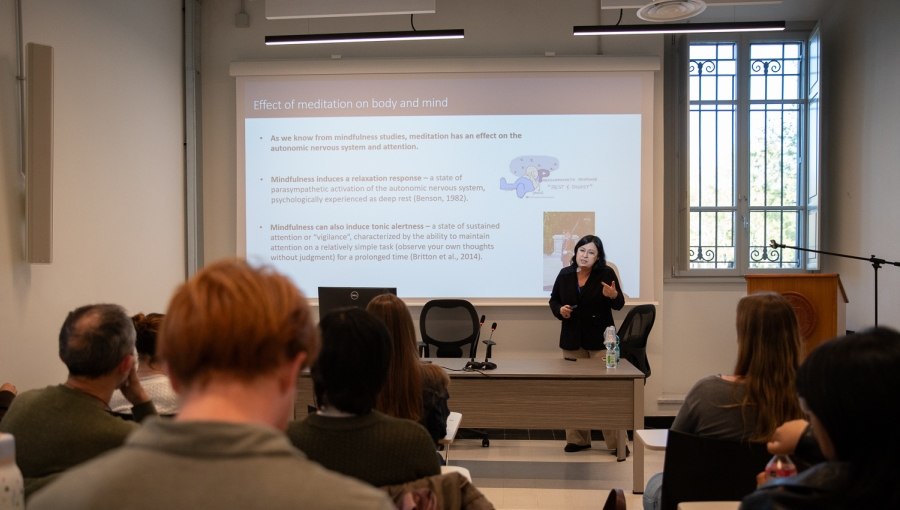JCU Welcomes Milagros Miceli for a Talk on Ethical AI
On October 24, the JCU Department of Communication and Media Studies welcomed sociologist and computer scientist Milagros Miceli for the talk “There’s No Ethical ‘AI’ Without Ethical Data Work.” The event was part of the Digital Delights and Disturbances lecture series and was moderated by Professor Donatella Della Ratta.

Miceli leads the research group “Data, Algorithmic Systems, and Ethics” at the Weizenbaum Institute for the Networked Society in Germany. Her field of research focuses on the underlying issues of meaning creation, knowledge production, and symbolic power embedded in machine learning data. In her talk, Miceli shed light on the ethical and social implications of AI development, particularly of working with data.
She began by giving as an example the January 2023 Time Magazine article titled “Exclusive: OpenAI Used Kenyan Workers on Less Than $2 Per Hour to Make ChatGPT Less Toxic” to highlight what is behind the workings of AI. Miceli explained the term “data work,” which she coined with Julian Posada, Assistant Professor of American Studies at Yale University, to describe the exploited labor that goes into producing data that fuels AI systems. Miceli explained that the “irony” of this process is that the exploitation of workers -most likely coming from disadvantaged backgrounds- is perpetrated in the name of creating a safer ChatGPT as discussed in the article, or more generally to improve AI performance and make it free from toxicity and biases.
Miceli also pointed out that we are used to hearing about the ethics of AI from a “computer science” perspective, focusing on bias mitigation for example, but there is a lack of discussion about the concentration of power and its asymmetry in the AI industry. She explained that there is a need to recognize labor as the fundamental dimension in the field of AI ethics because data is not just something that “hangs from a tree and can be just picked up.”
Miceli explained that this change of perspective led her to new research questions and methods of inquiry. The point was no longer just to recognize that data was not a “given,” but to understand who was working behind it and under what conditions. She showed a series of tasks that the data worker must accomplish to generate the data, including data entry, annotation, verification, and impersonation. The entire process, in which workers put themselves “in the user’s shoes” and analyze content classifying it based on accuracy or appropriateness, serves to train the AI to optimize results.
Miceli also mentioned that data workers are paid by tasks, not by the hour; this flexible salary and random task assignment putting them in an even more precarious situation. She continued by saying that the workers are asking themselves questions about the ethics of the work they are doing, especially regarding consent to the use of the data they analyze and the disturbing content they come across on a daily basis.
Miceli concluded her talk by reiterating that data is the product of asymmetrical social economy and labor relations and that AI could not exist without the data produced by human work. In this sense, anyone who has money, in addition to being able to afford the workers who produce the data, also has the power to “impose” their preferences, interpretations, and classifications.





